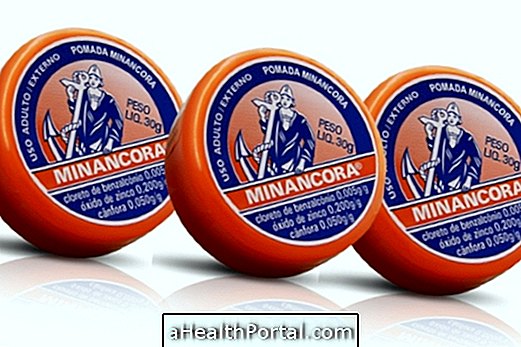Ritonavir is an antiretroviral substance that inhibits an enzyme, known as protease, preventing replication of the HIV virus. Thus, although this drug does not cure HIV it is used to delay the development of the virus in the body, preventing the onset of AIDS.
This substance can be found under the trade name Norvir and is usually provided free of charge by the SUS for HIV patients.

How to take
Ritonavir is usually used together with other HIV medicines, since it potentiates its effects. Therefore, in adults the doses may vary according to the combination of remedies:
- Ritonavir 100 mg + Amprenavir 600 mg : 2 times daily;
- Ritonavir 100 mg + Atazanavir 300 mg : once daily;
- Ritonavir 100 mg + Fosamprenavir 700 mg : twice daily;
- Ritonavir 100 mg + Saquinavir 1000 mg : 2 times daily.
The tablets should be ingested whole and preferably during or after the meal.
Dosages may vary by person, so it is very important to follow all doctor's directions.
Possible side effects
Some of the side effects that may occur with long-term use of ritonavir include changes in blood test, urticaria, headache, dizziness, insomnia, anxiety, confusion, blurred vision, blood pressure changes, abdominal pain, nausea, diarrhea, excess gas, acne and joint pain.
In addition, ritonavir also reduces the absorption of some oral contraceptives and therefore if you are taking this medicine it is very important to use another contraceptive method to avoid a possible unwanted pregnancy.
Who should not take
Ritonavir is contraindicated for people who are hypersensitive to any of the ingredients in the formula. In addition, ritonavir may also interact with the effect of various types of medications and therefore, its use should always be guided and evaluated by a physician.





















